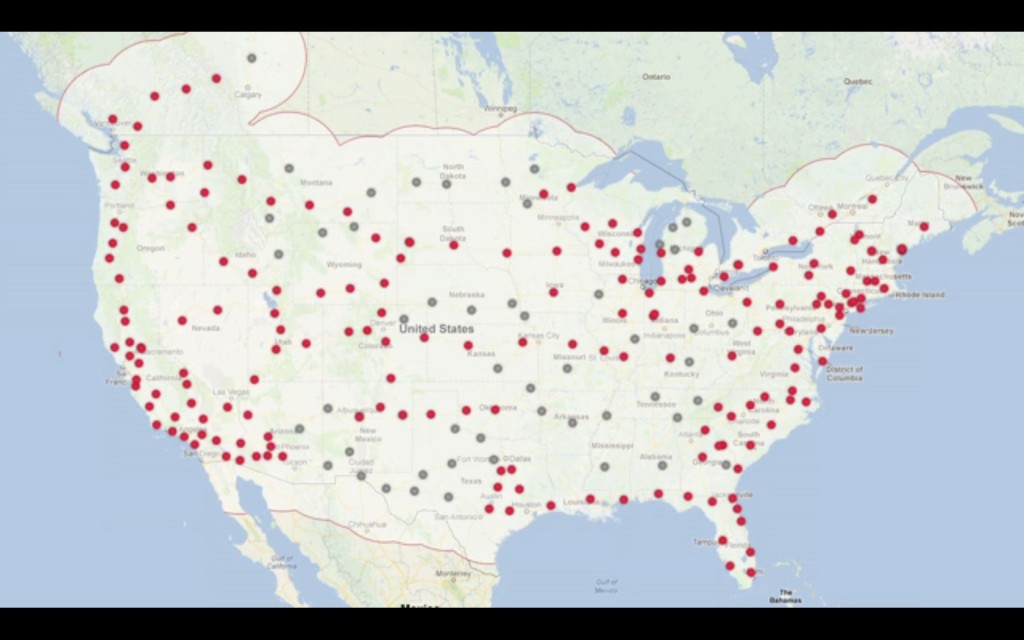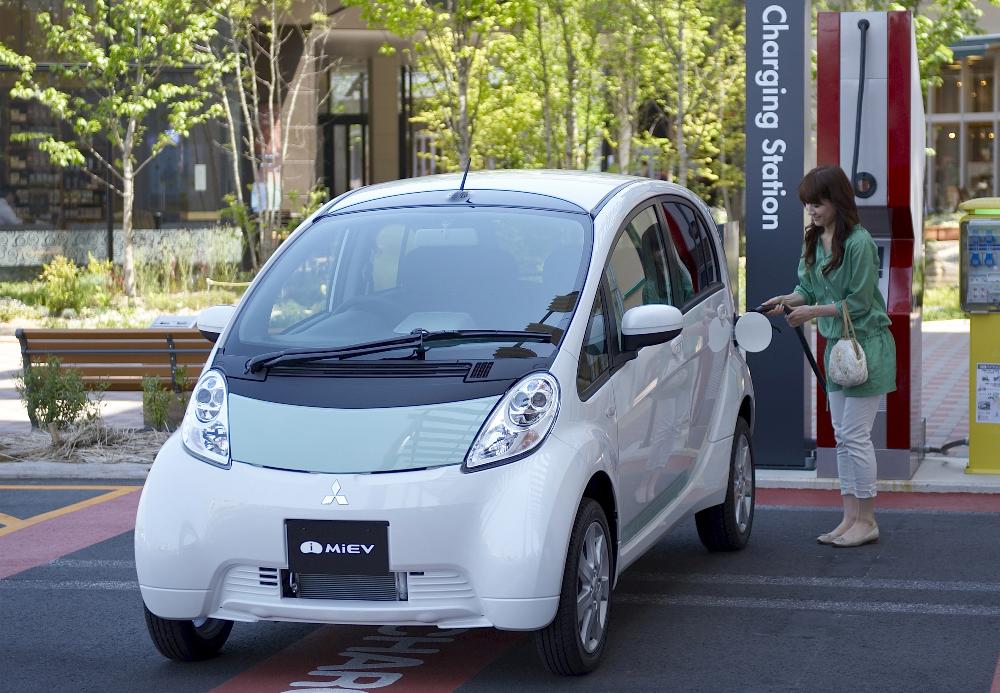Every so often, stories appear about new networks of charging stations for electric cars that have just opened.
But if there's no business model to support public charging stations over the long term, who's going to pay for that infrastructure in the future?
One possibility, observers suggest, is that the cost of (carefully sited) public charging stations could be absorbed by carmakers--as a marketing expense to build consumer confidence.
![Nissan Leaf electric car with eVgo quick charging station. [courtesy eVgo] Nissan Leaf electric car with eVgo quick charging station. [courtesy eVgo]](https://images.hgmsites.net/lrg/nissan-leaf_100417392_l.jpg)
Nissan Leaf electric car with eVgo quick charging station. [courtesy eVgo]
In a long interview last week, Oliver Hazimeh--who is the clean transportation leader within the automotive practice of PricewaterhouseCoopers--said the default providers may end up being a few of the most aggressive plug-in electric car makers.
And, he noted, the crucial infrastructure isn't 240-Volt Level 2 stations. It's the much faster DC quick-charging capability that recharges up to 80 percent of an electric car's battery capacity in 20 to 30 minutes.
Hazimeh carefully avoided naming any specific car makers.
But he suggested that a handful of car companies need to "step up to the plate" and provide just enough quick-charging stations that customers who shun electric cars because of their limited range are sufficiently reassured to start considering plug-ins as practical.
Those should come in regional clusters, Hazimeh said, in areas where electric-car density is already increasing.
He named Oregon and Washington states, the Greater Atlanta and Los Angeles areas, and the San Francisco-to-Los Angeles corridor as likely candidates.

Tesla Motors Supercharger Network In 2015 - released May 2013
The obvious model here is Tesla Motors, now in the early stages of rolling out what it says will be a nationwide network of Supercharger DC fast-charging stations for long-distance travel in its Model S electric luxury sedan.
Tesla has alluded to using the large battery banks planned for Supercharger stations to provide grid storage and other services to utilities. But today, the stations are mostly used by its customers for trips from, say, San Francisco to Los Angeles.
And there's no charge at all for the electricity. It's free.
For its part, Nissan is offering five-figure subsidies for installation of CHAdeMO quick chargers to companies, groups, and organizations in specific regions that install them by the end of the year and by next March.
Respected electric-car advocate Chelsea Sexton agrees that carmakers are one potential source of funds for quick-charging infrastructure.
"GM funded much of the California infrastructure in the 1990s," she pointed out. "And that wiring is now benefiting other companies who've come through and merely replaced hardware."

Mitsubishi i-MiEV electric car at quick charging station
And she underlined the marketing aspect.
"The broader point is that the most successful infrastructure is that which has been deployed as a marketing expense," she emphasized, "not as an individual business."
But it's not just car makers who can benefit, she stressed. It could be "an automaker doing it so more people will buy their cars," she said, but it could also be "retailers hoping to bring people to their stores, hotels, restaurants, etc."
"Especially in the early stages" of electric-car adoption, Sexton said, "people will go reasonably out of their way to patronize a location they perceive as supportive of their values."
BMW ActiveE driver Tom Moloughney, who installed two charging stations at his Nauna's Restaurant in Montclair, New Jersey, has numerous stories of diners visiting from all over the tri-state region simply because he's supporting electric cars.
"But since electric-car drivers are rarely dependent on any particularly public charge to get home," Sexton warned, "they're not going to be willing to pay much for it on a regular basis."
"Ironically," she suggested, "they'd probably spend more in the store that's 'supporting EVs' than they'd be willing to pay for the charge itself"--though she hasn't seen any data to quantify that point, she noted.
In the end--as always--Sexton stressed, "There's more psychology in all of this than has been acknowledged."
Who should pay for DC quick-charging infrastructure for electric cars?
Leave us your thoughts in the Comments below.
_______________________________________________













